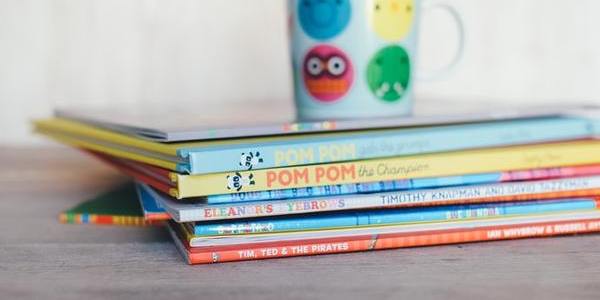Are you sitting comfortably? Good, then it’s statutory storytime
Once upon a time, children were kept in classrooms for six hours a day. They sat at desks and racked their brains to think of objectively ‘correct’ answers with little respite and no opportunity for imaginative relaxation. It might sound like fiction, but this is the reality of many schools in the state education system today.
According to research by the publishing group Egmont, fewer than a quarter of children aged 6-7 are being read to each day in school, a figure that falls to 14% by the time they’re ten. The study also found that only 37% of children aged 6-11 read for pleasure at all.
Egmont have teamed up with former Children’s Poet Laureate Sir Michael Morpurgo and are campaigning for statutory compulsory “storytime” for all children of primary school age. It sounds wonderful in concept. After all, what could be better than encouraging a love for reading in children from an early age? However, any statutory rules need to ensure they’re doing exactly that, and not inadvertently achieving the opposite.
Stories provide magical moments of stimulation, relaxation and escapism for people of all ages
Let me explain: my childhood memories of daily storytime involve a (normally) stressed teacher, skimming through a page or two of Roald Dahl. They would usually be clock-watching with five minutes left of the school day, have no enthusiasm and the class would be clueless, trying to remember what was read yesterday. Teachers need to be given the time and resources to do much better, just as they and their pupils deserve.
Stories provide magical moments of stimulation, relaxation and escapism for people of all ages. Reading is a powerful tool with which to arm children and young people especially, who are still learning how to negotiate their lives. Lovers of books (in particular those who love books enough to make it halfway through a books-based article in a student publication) often have fond memories of childhood reading experiences.
Sharing a book as a class daily is a great way to develop speaking and listening skills, to discuss and predict what will happen in the story or to share opinions on developments. Simply the process of choosing a book to read can be an opportunity for discussion, not to mention the shared social experience of episodically discovering a narrative with peers.
Books can open worlds, expand imaginations and bring people together
But a statutory storytime ruling needs to recognise that “storytime” should not mean lecturing. A silent class sat for half an hour in front of a teacher reading monotone from a small book is no way to enjoy a story. One of my favourite early memories of engaging with stories is being part of a Reception class all simultaneously encouraged to act out We’re Going on a Bear Hunt with the teacher as she read from the book. Chaos inevitably ensued but every child participated, had fun and improved their listening skills, and it’s an experience I still remember today.
More games, visuals, participation and general fun is needed to encourage young children to engage with literature. No child is going to wake up one morning and decide to read for pleasure if they haven’t seen what’s so fun about books in the first place. Similarly, no child is going to start their journey to reading with War and Peace, so there’s no point in being precious over what constitutes ‘proper’ children’s literature.
Reading to children from a young age is to empower them with the skills to keep reading. Once on that course, there’s no stopping: from The Hungry Caterpillar, to Harry Potter, to Catch-22, the books will grow with the child and a whole world of information will open up to them.
Books can open worlds, expand imaginations and bring people together. These are experiences the current education system is denying too many children daily. Statutory storytime can only be a good thing for children, and consequently, for the future of the world.

Comments